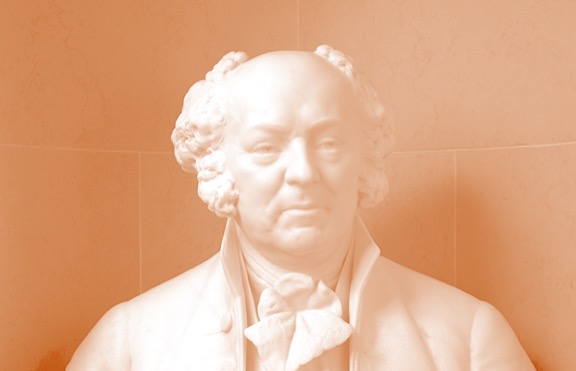Part II: Honor and self-constraint can stave off tyranny.
Anarchy in the CIA

When the intelligence community wants to recruit punk rockers, who are society’s rebels?
Twenty twenty-three is the year when counterculture officially went spook. Of course, it started there, too, so it would be more accurate to say that in 2023 counterculture closed the circle.
From 1953 to 1973, the CIA ran MKUltra, the illegal program designed to chart the potential of psychedelic drugs for mind control. Among the notable graduates of the program were the Beat writers Allen Ginsburg and Ken Kesey, environmental terrorist Ted Kaczinski, and the architect of the murder of the twentieth century, Charles Manson. All counterculture heroes on this list were first introduced to LSD by the spy agency, and all but Kaczinski then passed that experience to their disciples, forging the hippie ideology and aesthetic.
Now the CIA plans on recruiting at the South by Southwest festival, or SXSW, the punk rock/alternative yearly flagship event in Texas. On their webpage, the CIA announced that it will be holding a tech-dedicated panel called “Spies Supercharged”:
In a world of ubiquitous surveillance, artificial intelligence, sophisticated disinformation campaigns, and data streams that double in size every two years, how will intelligence agencies respond to the opportunities and challenges presented by emerging technologies and the ever-changing digital ecosystems we will live within? Join CIA Leaders in Technology and Digital Innovation on this wide-ranging discussion about the future of intelligence.
Adding that participants can
Talk with CIA officers about exciting career opportunities [and] learn about industry partnerships […]
Shortly after the panel was announced on social media, one punk rocker immediately inquired about potential financial benefits. The account tweeted:
please use your platform and make your voice be heard to demand SXSW pays performers more than just a wristband [sic].
To be sure, plenty of snarky comments were hurled at the spy agency. Still, it’s interesting that the CIA is interested in recruiting among the characters who a few years ago would be considered security risks and also that the promoters are allowing the spooks to set up a booth.
It used to be that proud degenerates, like the now disgraced Biden Administration’s gender fluid nuclear waste appointee Sam Brinton, would not be allowed anywhere near state secrets. Now it took a formal felony charge to revoke the accused serial thief’s security clearance. Brinton, who sometimes spotted a red Mohawk and purple lipstick, probably had a full-blown punk stage in college. So there is that precedent.
In decades past, an eccentric appearance was taken as a sign of rebellion. In the seventies, punk rockers lived to provoke traditional mores and challenge all authority. An art movement grounded solely in rousing emotions was expected either to wither away or emerge as a hegemonic force at the expense of shedding its core principles. It’s hard to say which option would constitute success.
In that subculture, preserving rebellious authenticity was always an uphill struggle. Some of the indicators and signals were quickly discarded—sure, wearing swastikas would antagonize a great many passers-by but tended to attract the wrong people to your shows.
In the nineties, facial piercings went hipster, and tattoos became mainstream. A sanitized version of punk aesthetic invaded suburban malls, prompting subcultural figures to guard bona fides of the scene with a more subtle dress code and, in particular, far Left politics.
In the meantime, the nation grew increasingly polarized, and the Left’s Long March through the institutions continued apace. To stand out, musicians with countercultural pretensions always opted to channel the most radical ideological assumptions into every aspect of their private lives. As a result, insufferably woke musicians cancel bandmates. That isn’t lost on the former Sex Pistol Johnny Rotten who surmised:
I never thought I’d live to see the day when the right wing would become the cool ones giving the middle finger to the establishment, and the left wing becoming the sniveling self-righteous twatty ones going around shaming everyone.
Although a handful of conservatives who happened to know who Rotten is were delighted to hear it, the musician’s opinions hardly won him any new friends in his own circles.
During the COVID lockdowns, punk rockers proved themselves to be obedient little subjects, deferring to institutional authority, supporting every repressive measure from masking, lockdowns, and compulsory injections to championing social engineering schemes.
Henry Rollins is a great example of the newfound obedience. In an interview with Eugene Weekly the former frontman of Black Flag explained:
I believe in scientists. When Fauci speaks, I listen. I think he’s looking out for me.
Likewise, a Satanic Temple gathering scheduled for April 2023 in Boston will require masking and proof of a mRNA jab. The insistence on theatrics, long after the government bureaucracies found it unnecessary, suggests a certain fixation on power—Satanists are going to institute repressive measures just because they can.
As Antifa, punks were given free reign of the streets in the run up to the 2020 election—harassing wrongthinkers, vandalizing businesses, destroying monuments, and even burning down the historic St. John’s church in Washington, DC. In Seattle, they were allowed to set up their own autonomous zone where laws of the land did not apply. It’s hard not to notice that during the lockdowns the kids who, fifty years ago, would be presumed to be part of an underground movement found themselves in a very cozy relationship with the state.
The look and sound of punk has always been menacing—deafening, ripped leather, spikes. But if as a subcultural movement it connoted a challenge to the regime, as an establishment-friendly aesthetic they present themselves as its shock troops.
Some punks will probably insist that they loathe spy agencies, but why is the CIA courting them at SXSW? Are they seeing poser revolutionaries who can be easily herded into institutions? If the supposed underground visionaries believed that cancelling live shows saves lives—and these are people for whom performing and attending shows is religion—they can be made to believe anything.
The very agency that provided the impetus for the creation of counterculture saw the counterculture take over American institutions. The CIA now welcomes its spawn.
The American Mind presents a range of perspectives. Views are writers’ own and do not necessarily represent those of The Claremont Institute.
The American Mind is a publication of the Claremont Institute, a non-profit 501(c)(3) organization, dedicated to restoring the principles of the American Founding to their rightful, preeminent authority in our national life. Interested in supporting our work? Gifts to the Claremont Institute are tax-deductible.
On campus, today's forlorn meritocrats no longer believe what the apparatchiks are teaching them.






